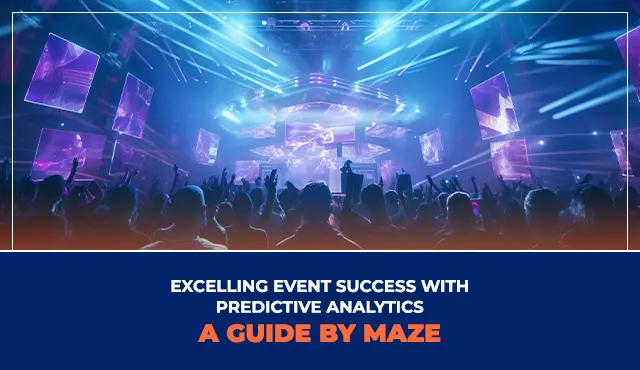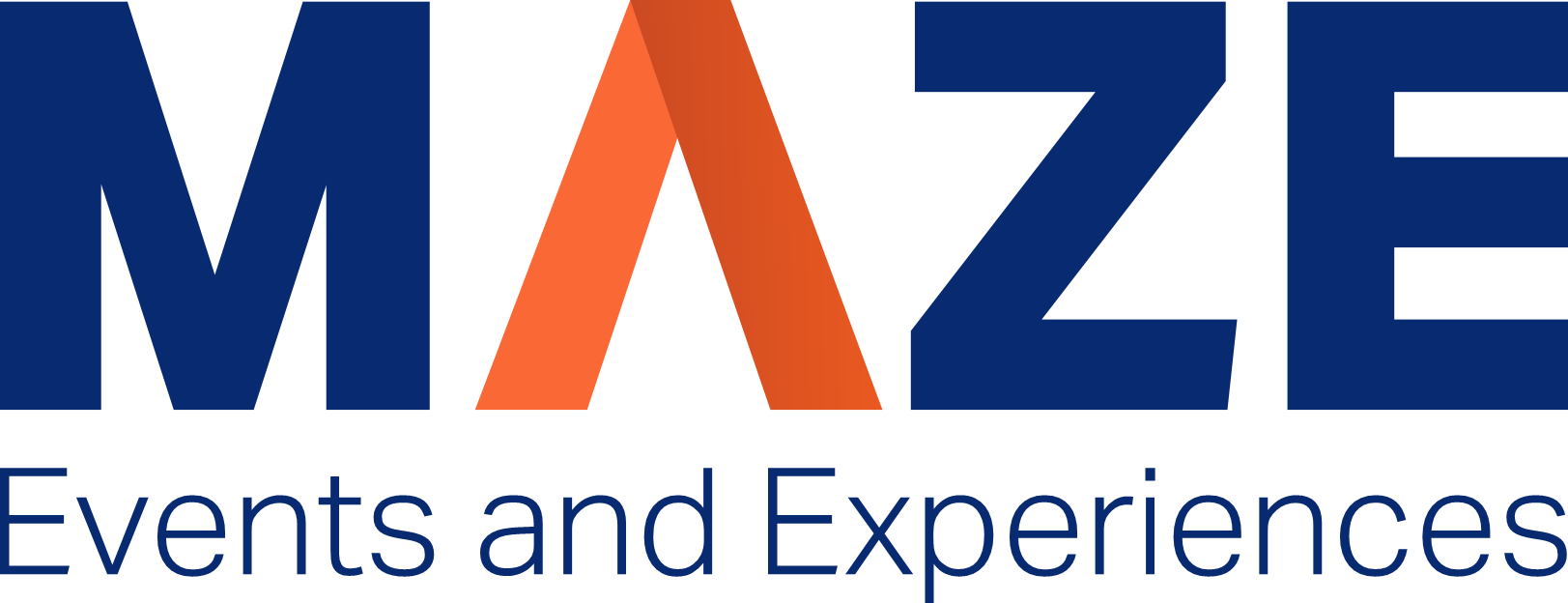
Excelling Event Success with Predictive Analytics: A Guide by MAZE
What is predictive analytics?
How is predictive analytics performed?
Data Collection:
Data Collection:
Data Analysis:
Insights and Decision-Making:
Why is predictive analytics important for event management?
Beyond Guesswork: Exploiting AI for Precision in Event Logistics
1. Analyze Past Events and Current Trends: AI tools will help to analyze past events and current trends to determine the theme or topic for upcoming events. AI evaluates the social media sentiment, feedback from previous events, and registration data and identifies the patterns and preferences of attendees. These insights will help the organizers plan their events more effectively and successfully.
2. Event Logistics Optimization: AI can predict optimal dates, locations, and times for events based on historical weather patterns and attendee demographics. Overcoming logistical challenges and increasing attendance are possible with the above analysis.
3. Personalized Experience for Attendees: Attendees seek help from the help desk for session preferences and networking opportunities. But with a single help desk, it is next to impossible to deliver a personalized experience for attendees at a significant corporate event. Using AI, event organizers can create content for the event in real-time based on past behavior and the interests of attendees.
4. Resource Allocation and Demand Forecasting: Venue size, catering needs, and staffing requirements are essential factors in any event management, and unfortunately, most newbies are not able to overcome these. Predictive analytics can forecast attendance numbers, determine venue size, and ensure that the events are neither over- nor under-resourced and costs are optimized.
5. Risk Assessment and Management: Logistical issues and security concerns are a threat to the success of any event. Through predictive analytics, we can suggest mitigation strategies to identify, monitor, and respond to emerging risks or issues.
6. Promotional Activities: AI tools are trained to identify the most effective social media channels and messages to reach potential attendees. AI shares data from different marketing strategies and analyzes it to predict the exact scope and goal of future campaigns.
7. Feedback Analysis Loop: Feedback from attendees post-events is very crucial for event managers and organizers as they provide the actual data of what worked well and what didn’t. Looping the data with current trends will improve the quality and relevance of future events.
Beyond Guesswork: Exploiting AI for Precision in Event Logistics
Features: attendance tracking, engagement analysis, and comprehensive reports.
Pros:
1. Detailed insights into attendee behavior
2. Customizable dashboards
Cons:
1. Steeper Learning Curve
2. Additional costs for advanced features
Core-Apps is an event app with data analytics for community engagement.
Features: Tracks attendee satisfaction and session feedback.
Pros:
- Real-time reporting,
- Integrates well with other management tools.
Cons:
1. Limited analytics features,
2. Basic data visualization.
Features: Tracks ticket sales, attendee demographics, and revenue; optimizes pricing and marketing.
Pros:
1. Real-time reporting,
2. Integration with other tools,
3. Customizable dashboards.
Cons:
1. Limited analytics compared to specialized platforms,
2. Limited data visualization.
Cvent offers comprehensive analytics for event management.
Features: real-time dashboards, attendee tracking, and detailed reporting.
Pros:
1. In-depth insights on attendee engagement,
2. Customizable reports.
Cons:
1. Steeper learning curve,
2. Advanced features may cost extra.
Features: tailor the event’s logistics and enhance attendee experiences.
Pros:
1. Real-time analytics,
2. Integration with other tools.
Cons:
1. Basic data visualization,
2. Requires integration for detailed analysis.
Features: Tracks attendee behavior, seating preferences, and space utilization.
Pros:
1. Customizable reports,
2. Venue-focused analytics
Cons:
1. More focused on venue than overall event analytics.


